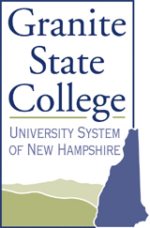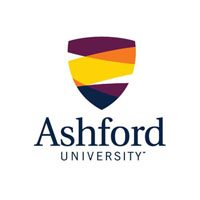With government and private organizations placing a greater emphasis on early childhood education, the demand for ECE teachers is growing. According to the U.S. Bureau of Labor Statistics, schools will add 30,000 preschool teachers through 2024, a 7% growth rate, and 88,000 elementary teachers in the same time frame, or about a 6% growth rate. Each of these positions requires at least a bachelor’s, as ECE teachers exercise a wide range of skills beyond teaching: classroom management, special needs assistance, parent-teacher collaboration, administrative help, ECE psychology, and more.
Because of their affordability and flexibility, aspiring ECE professionals are increasingly turning to online degree options, especially if they’ve already earned a bachelor’s in another discipline. Nearly all online tracks offer generous transfer policies (waiving general education requirements) in addition to flexible schedules, designed to accommodate working professionals and adult learners. For your convenience, we’ve compiled our top 10 online ECE bachelor’s below.
1) Aspen University

Founded in 1987, Aspen University specializes in distance education, offering associates, bachelors, masters, doctorates, and certificates in a wide variety of fields. All programs are designed for maximum flexibility to accommodate schedules of adult learners and full-time professionals. And with a total enrollment of about 2,700 and a 6:1 student-to-faculty ratio, the university supports individualized instruction and intimate classes. It nationally accredited by the Accrediting Commission of the Distance Education Accrediting Commission (DEAC).
Aspen’s online BS in Early Childhood Education is designed for both aspiring and current ECE professionals, consisting of 120 credits. Major requirements include Infant and Toddler Mental Health, Language Development, Promoting Literacy in Preschool, Strategies for Classroom Management, Curriculum for Young Children, Children with Special Needs, Guiding Preschool Behavior, and more. To customize the curriculum, students choose from a variety of electives (including for either preschool or infant/toddler specialization), and a senior capstone project incorporates theory with real-world practice. In particular, the curriculum follows standards according to the Child Development Associate (CDA) credential.
- Homepage
- Tuition Per Year: $4,200
2) Central Methodist University

Founded in 1854, Central Methodist University is located in Fayette, Missouri, with a total enrollment of about 5,500. While set up under the liberal arts model, CMU emphasizes practical, career-driven curricula that prepare students for the professional world, and CMU’s innovative online programs are designed to accommodate working professionals. Most importantly, the 13:1 student-to-faculty ratio allows for individualized instruction and intimate classrooms: over 65% of classes have fewer than 20 students. US News ranks CMU 26th in the region.
Central Methodist’s online BS in Early Childhood Education develops an in-demand education skillset, with classes in Teaching, Educational Psychology, Methods of Teaching Mathematics in Elementary/Middle School, Children’s Literature, Creative Arts, and Reading and Writing with Young Children, among others. In addition, CMU’s experiential learning emphasis incorporates hands-on projects, , presentations, practicum experiences, and internships. All online courses are designed for maximum flexibility, including the option between accelerated 8-week blocks and traditional 16-week blocks. Academic advising, library services, financial assistance, a career development center, tech support, and counseling are among the available students resources.
- Homepage
- Tuition Per Year: $5,400
3) Western Governors University

Western Governors University is a 100% online university based in Salt Lake City, Utah, and founded in 1996 by 19 state governors with the goal of creating a flexible, self-paced higher education degree. In particular, WGU utilizes competency-based credits that award students for previous life and work experience, which accelerates degree completion time, keeps costs down, and eliminates redundant course work. TIME Magazine, Fast Company, NBC Nightly News, and CNN have recognized WGU’s innovative approach, and the Bill and Melinda Gates Foundation has awarded the university $4.5 million in funding. It is the country’s top producer of math and science teachers, and has won the 21st Century Award for Best Practices in Distance Learning from the United States Distance Learning Association multiple times.
WGU offers an online BA in Interdisciplinary Studies with a concentration in Elementary Education, designed for traditional students in addition to unlicensed teachers, substitute teachers, career changers, retired military personnel, and school paraprofessionals. Among the major courses are Teacher Education Diversity, Pedagogy, Effective Teaching Practices, Elementary Education Methods, Teacher Education Foundations, Preclinical Experiences, and Demonstration Teaching. With flexible coursework and the school’s transfer policy, students typically complete the degree in as little as 2-2.5 years. The program is accredited by the NCATE (the first online program to achieve that distinction) and is nationally recognized by the Association for Childhood Education International (ACEI).
- Homepage
- Tuition Per Year: $6,070
4) Jackson State University

Jackson State University, founded in 1877, has a total enrollment of 10,000. US News ranks it 16th in the region among HBCUs. All programs are designed to develop tech-savvy, ethical, and global leaders who think critically and address societal problems. Jackson State’s 18:1 student-to-faculty ratio helps to create a vibrant, collaborative learning community that combines individualized instruction with peer-to-peer learning. Nearly 40% of classes have fewer than 20 students and less than 10% have 50.
Jackson State’s online BS in Child Care and Family Education consists of 122 credits. Major requirements include Teaching and Learning Styles, Administration of Child Care Services, Utilization of Multi-Media Resources, Child Psychology, Pre-Reading Skills, Studies in Child Guidance, and Parent, Child, and Teacher Interaction. Designed for adult learners and professional workers with previous academic credits, JSU’s program allows up to 93 hours to be transferred into the program, leaving only the major education courses left. All courses are highly flexible and deliver through the dynamic Canvas platform, which includes tech support, 24/7 access, group discussion boards, and more.
- Homepage
- Tuition Per Year: $7,261
5) Granite State College

Founded in 1972, Granite State College has a total enrollment of about 2,200, offering associate’s, bachelor’s, and master’s tracks. With a 12:1 student-to-faculty ratio, GSC offers small, intimate classes that balance collaborative learning with student-centered instruction to accommodate a variety of students, including working professionals and adult learners. More than 80% of classes have fewer than 20 students, and none have over 49. For those interested, GSC offers excellent financial aid opportunities as well: 85% of full-time undergrads receive some form of aid.
Granite State’s online BS in Early Childhood Education includes certification options for Early Childhood Education and Early Childhood Special Education. (An accelerated track is available for community college graduates with previously earned credits; 84% of the school’s students are transfers). Major requirements include Special Education Law, Role of the Special Educator, Collaboration/Consulting/Teaching in EC/ECSPED, Behavioral Interventions in EC/ECSPED, and a Culminating Teaching Experience and Seminar. With a field-based focus, students gain valuable real-world experience in educational settings and learn from highly skilled professionals. The program is regionally accredited by the New England Association of Schools and Colleges (NEASC).
- Homepage
- Tuition Per Year: $8,265
6) Bemidji State University

Bemidji State University, founded in 1919, is a public institution in Minnesota with a total enrollment of about 5,000. US News ranks it 35th among public schools in the Midwest. With a 19:1 student-to-faculty ratio, BSU maintains an intimate and collaborative educational environment, combining personalized instruction and peer-to-peer learning. Over 40% of classes have fewer than 20 students, and less than 8% have 50. Further, the university is exceptionally diverse for a school of its size, with students from 38 countries around the globe. 60% of full-time undergrads receive some form of aid.
Bemidji State offers an online BS in Elementary Education (leading to Elementary Teacher Licensure) with teaching endorsements available in PrePrimary, Math, Social Studies, Science, and Communication Arts & Literature/English to tailor the curriculum to areas of professional interest (endorsements typically add 20-30 credits). Core requirements include Foundations of Public School Education, Educational Psychology, Human Relations In Education, Pedagogy: Planning for Instruction, The Professional Teacher, Health and Drugs in Society, and Adaptation and Management: Designing the Learning Environment. For those interested, BSU also offers a unique Distributed Learning in Teacher Education program, consisting of online/hybrid and cohort-based courses delivered in six-semesters and culminating in a BS with licensure in Elementary Education.
- Homepage
- Tuition Per Year: $8,394
7) Mayville State University

Founded in 1899, Mayville State University has a total enrollment of about 1,100 and is ranked 5th in region among public schools by US News. The school’s 13:1 student-to-faculty ratio guarantees that students will benefit from small classes that balance individualized teaching with collaborative learning. Nearly 80% of classes have fewer than 20 students and just 1% have 50. As a sign of student satisfaction, MSU’s freshman retention rate is over half. Its core values are integrity, student-focused education, teaching and learning excellence, community, and leadership.
Mayville State offers an online BS.Ed. In Early Childhood Education, which includes 33 core professional credits: Strategies in Early Elementary, Language Literacy in ECE, Reading in Early Elementary, Infants and Toddlers, Pre-K Methods/Materials, Movement Education, and more. All courses are designed for maximum flexibility to accommodate students’ schedules, and a generous transfer policy can accelerated degree completion time. The program adheres to the performance-oriented standards of the Council for the Accreditation of Educator Preparation (CAEP) and is accredited by the National Council for Accreditation of Teacher Education (NCATE). (Note that all senior students must complete the final 6-week summer block on campus.)
- Homepage
- Tuition Per Year: $9,073
8) Ashford University

Founded in 1918, Ashford University specializes in online education and features programs in a variety of disciplines, from business to education, with bachelor’s, master’s, and associate’s tracks. According to a survey, 83% of students agreed or strongly agreed that course material was valuable; 85% agreed that quality of instruction was of high or very quality; and 91% reported being satisfied to very satisfied with their educational experience. With nearly 66,000 online students, Ashford is one of the largest distance education universities in the world. Still, the 13:1 student-to-faculty ratio keeps classes small and intimate, combining personalized instruction and collaborative learning opportunities.
Ashford offers an online BA in Early Childhood Education that consists of 42 major credits, including classes like Nutrition & Health of Children & Families, Collaboration with Parents & Community, Child Development, Children’s Literature, Language Development in Young Children, and Early Childhood Curriculum & Methods, among others. From there, students have the option to specialize in Infant & Toddler Care for an additional 12 credits. Courses deliver in accelerated 5-week blocks, and Ashford’s generous transfer policy allows students to waive up to 90 credits. All students also enjoy 24/7 tech support and writing assistance, career services, library services, and more.
- Homepage
- Tuition: $485/credit
9) South Dakota State University

Founded in 1881, South Dakota State University is a Tier 1 school, ranked among the best schools in the region by US News. The university’s total enrollment stands at 12,600, but its 17:1 student-to-faculty manages to combine the benefits of a large research school with a small, intimate classroom experience. A third of all classes have fewer than 20 students and just 15% have 50. As a sign of student satisfaction, South Dakota’s freshman rate is over 75%, and its alumni base of 75,000 serves as an excellent professional network.
SDSU offers an online BS in Early Education and Care in collaboration with seven other universities in the GPIDEA consortium. Major requirements include Child Guidance and Classroom Environments, Technology and Young Children, Working with Families, Professional Development for Early Childhood Education Providers, Administration and Supervision in Early Childhood Settings, Assessing Young Children to Enhance Development, and Understanding and Adapting to Developmental Differences, among others. Students also complete several practicum courses to develop and hone teaching skills in ECE environments. Student support services include a career center, library assistance, academic advising, tech support, and more.
- Homepage
- Tuition Per Year: $11,403
10) Kaplan University

Founded in 1937 as the American Institute of Commerce, Kaplan University has fourteen campuses in Indiana, Iowa, Maine, Maryland, Missouri, and Wisconsin, with online student support centers around the country. Kaplan specializes in online education and provides maximum flexibility for its varied student body, which includes adult learners and working professionals; with new entry dates available every month, students have the freedom to begin their studies according to their unique schedule demands. Each student also has their own advisor for academic and enrollment counseling. There are currently over 40,000 students enrolled, and campuses and learning centers are available throughout the country for students wanting blended or face-to-face education formats.
Kaplan offers an online BS in Early Childhood Administration that consists of 103 major requirements in a variety of subjects: Early Child Development, Curriculum Planning, Special Needs, Interpersonal Communications, HR Management, Child and Adolescent Psychology, Early Childhood Administration, Current EC Issues and Trends, and Organizational Communication, among others. Students also have several opportunities for in-class work to develop teaching skills and electives to customize the curriculum. Instructors are highly experienced professionals who have held leadership positions in public and private education organizations, and agencies like Head Start. For those interested, program graduates are eligible to enter Kaplan’s accelerated master’s tracks in Public Administration, Human Services, Legal Studies, or Psychology.
- Homepage
- Tuition Per Year: $11,601
Related Rankings

